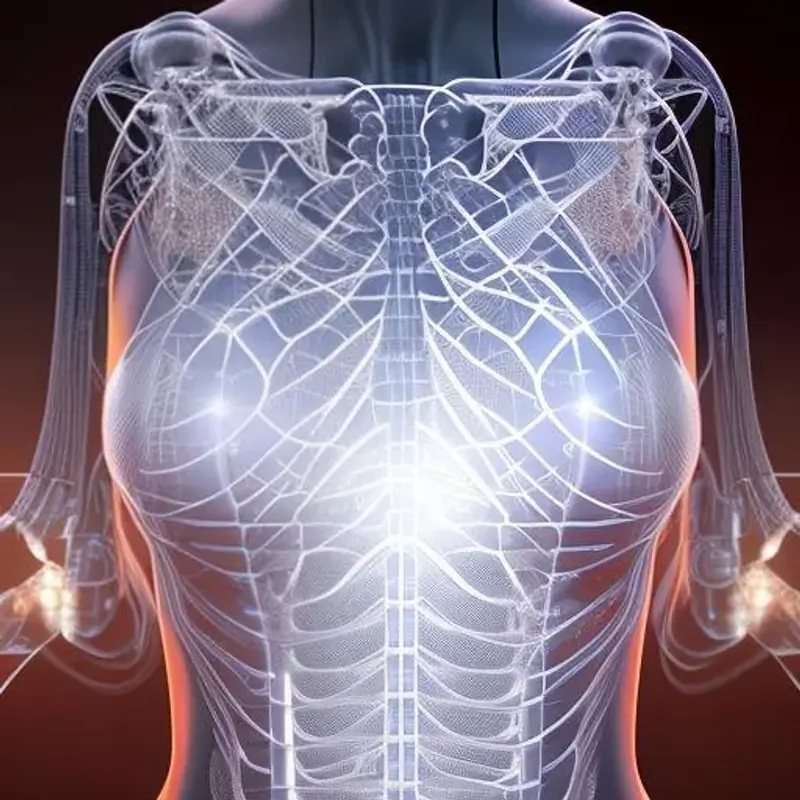AI Benefits for Doctors: Enhancing Healthcare Efficiency

Table of Contents
The medical field has always been one of the most complex and demanding industries. As doctors, we are tasked with balancing patient care, treatment plans, diagnoses, and administrative duties—sometimes all at once. Amidst these challenges, technology has emerged as a crucial ally, offering us tools to streamline our workflows and improve patient outcomes. Artificial intelligence (AI) has become one of the most transformative technologies in healthcare, offering significant AI benefits for doctors by enhancing efficiency, precision, and overall care quality.
But can AI truly replace the invaluable human touch in medicine, or does it merely enhance our capabilities? As healthcare professionals, we understand that patient care requires empathy, intuition, and a deep understanding of the human body. So, where does AI fit in, and how can it help us do our jobs better without overshadowing the personal connections we build with our patients?
In this article, we will explore the various AI benefits for doctors, including how AI-driven patient care, machine learning for healthcare professionals, and AI-assisted diagnosis can redefine the future of healthcare. From enhancing treatment planning to providing intelligent systems that support decision-making, AI is reshaping how we deliver care, ensuring faster, more accurate diagnoses, and ultimately improving patient outcomes. But how does all of this work in practice? Let’s find out.
The Role of AI in Medical Practice
AI has already made a significant impact on medical practice and is only set to grow in the coming years. By leveraging AI medical tools, physicians can make faster, more accurate diagnoses and develop better treatment plans. These intelligent systems are capable of analyzing vast amounts of data—much more than a single human could process—enabling doctors to make informed decisions quickly and effectively.
Incorporating machine learning for healthcare professionals allows us to have access to continuously evolving algorithms that can detect patterns in patient data that might otherwise go unnoticed. These AI-powered medical analysis tools can help detect early signs of diseases such as cancer, heart conditions, and neurological disorders, allowing for AI-assisted diagnosis that can be more accurate than traditional methods.
Moreover, AI clinical decision support systems help doctors in decision-making processes by providing real-time suggestions based on medical evidence, patient history, and up-to-date clinical guidelines. With AI, we can focus more on patient interaction and care while trusting the system to handle the heavy lifting of data processing and analysis.
AI in Diagnosis and Treatment Planning

One of the most profound AI benefits for doctors lies in its ability to assist with automated diagnostics and AI-enhanced treatment planning. Traditional diagnostic methods often rely on the experience of the physician and the time spent analyzing test results. However, with the integration of AI tools, physicians can receive faster and more precise interpretations of medical imaging, laboratory results, and patient history, ensuring better treatment planning.
For instance, AI algorithms can now assist in interpreting medical images such as X-rays, MRIs, and CT scans. These systems have been trained using vast amounts of imaging data, enabling them to identify even the smallest anomalies that a human eye might miss. With this AI-powered medical analysis, physicians can detect conditions such as tumors, fractures, or infections with a higher degree of accuracy.
Additionally, AI-driven patient care is transforming the treatment process by offering personalized treatment plans based on a patient’s medical history, genetic information, and lifestyle. These systems can predict patient responses to various treatments and suggest the most effective courses of action, leading to better clinical outcomes.
AI Assistance in Patient Management
Efficient AI patient management systems allow doctors to optimize their time and focus on the most critical aspects of patient care. By automating administrative tasks such as scheduling, billing, and record-keeping, AI frees up valuable time for doctors to focus on what truly matters—patients.
Moreover, AI can assist in patient triage, prioritizing cases based on urgency and medical need. This helps doctors manage patient flow, ensuring that critical cases are treated first and reducing wait times for patients.
AI-powered intelligent systems for doctors can also track patient progress over time, flagging any concerning trends or deviations from expected recovery. This real-time monitoring can alert doctors to potential issues before they become critical, enhancing patient safety and outcomes.
Streamlining Workflow with AI in Healthcare

AI-driven healthcare solutions are not just limited to patient care—they extend to streamlining the overall workflow within healthcare settings. By utilizing smart health technology, doctors can automate repetitive tasks and improve administrative efficiency.
For example, AI tools can assist with automated documentation, helping doctors generate notes and summaries quickly without manually typing everything out. This ensures that patient records are accurate and up-to-date without taking time away from patient interaction.
Additionally, AI medical research and data analysis tools help healthcare professionals stay on top of the latest medical advancements, clinical trials, and emerging treatments. These intelligent systems can analyze vast amounts of research data and provide physicians with actionable insights, aiding them in making informed decisions based on the latest evidence.
The Future of AI in Medicine
Looking ahead, the integration of AI in medical practice is poised to grow exponentially, offering even more AI benefits for doctors. As technology continues to evolve, we can expect AI to play an even greater role in personalized healthcare and predictive medicine.
AI medical research is advancing rapidly, enabling us to discover new treatments, drugs, and therapies at an unprecedented pace. These breakthroughs will empower healthcare professionals to offer more effective, tailored treatments to patients, enhancing overall health outcomes.
Furthermore, the integration of doctor AI support tools will help healthcare systems become more efficient and cost-effective, benefiting both patients and physicians. By automating administrative tasks and improving diagnostic accuracy, AI can significantly reduce the burden on doctors, allowing them to focus more on patient care.
FAQs about AI Benefits for Doctors
What are the main AI benefits for doctors?
AI helps doctors with faster, more accurate diagnoses, better treatment planning, patient management, and streamlining administrative tasks, ultimately improving healthcare efficiency.
How does AI assist in diagnosis and treatment planning?
AI analyzes large datasets, such as medical images and patient history, to provide doctors with real-time diagnostic support and personalized treatment recommendations, enhancing patient outcomes.
Is AI replacing doctors in healthcare?
No, AI is not meant to replace doctors. It assists healthcare professionals by automating administrative tasks, providing decision support, and offering accurate diagnoses, allowing doctors to focus on patient care.
What are AI-powered medical tools used for?
AI-powered medical tools are used for improving diagnostic accuracy, predicting treatment responses, automating patient management, and enhancing clinical decision-making, all of which benefit healthcare professionals.
How does AI enhance patient care?
AI improves patient care by offering personalized treatment plans, detecting early signs of disease, providing decision support, and improving diagnostic accuracy, ultimately leading to better patient outcomes.
Conclusion: Embracing AI for a Healthier Future
The integration of AI in healthcare offers numerous AI benefits for doctors, from improving diagnostic accuracy and treatment planning to streamlining workflows and enhancing patient management. AI-assisted diagnosis, machine learning for healthcare professionals, and AI-powered medical analysis are transforming the way we deliver patient care, enabling us to work more efficiently and effectively.
As we move forward, the collaboration between doctors and AI systems will continue to evolve, ultimately leading to improved healthcare outcomes and a more efficient healthcare system overall. By embracing digital health innovation and AI-driven patient care, doctors can focus more on what they do best—providing compassionate, high-quality care to their patients.
Popular Tags
ADS SPACE HERE


